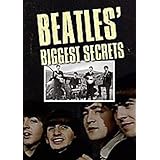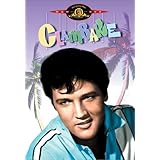
Average Reviews:

(More customer reviews)Are you looking to buy
Candy (1968)? Here is the right place to find the great deals. we can offer
discounts of up to 90% on
Candy (1968). Check out the link below:
>> Click Here to See Compare Prices and Get the Best Offers
Candy (1968) ReviewThis movie was made in the year I was born, so it's gotta be good right? Right. I must admit I was curious, not only because it starred Ewa Aulin, whom I'd first seen in Joe D'Amato's Death Smiles On A Murderer, but it co-starred John Astin, Marlon Brando, Richard Burton, James Coburn, Walter Matthau, and Charles Aznavour! What a lineup!
It turns out that those five all play exaggerated cariacatures of their roles, the uncle (Astin), a mystic who travels across the country in the back of a diesel truck (Brando), a drunken poet who struts like a rock star and whose hair blows constantly as if having a personal wind machine around him (Burton), a surgeon whose operating theatre is like an actual theatre, complete with audience looking down at his performance (Coburn), a general who has been airborne without the company of women for way too long, and a hunchback (Aznavour), all of them trying to score with Candy.
The opening scene is a true stunner--the appearance of a ball of heavenly light in outer space, the scene shifting to various galaxies, with the heavenly light coming to the familiar blue-green planet of Earth. The camera then pans along a desert, a stretch of cracked earth, and then the ball of light materializes into a covered white sheet. The sheet unfurls to reveal our beautiful heroine--Candy Christian, who gazes at the camera with a dazed but sensual look. She gives us the briefest glimmer of a smile, nothing more.
While the next scene revealed that she was in her father's class daydreaming and that she was an Earth girl, I kind of wonder if she was an extraterrestrial, and that scene told of her arrival to Earth. The Byrds' "Child Of The Universe" playing over the closing credits also lend credence to that theory.
The 60's rock guitar score provides a bit of nostalgia, of a style of music and movies that bely a period long gone. And Candy predates Star Wars by nine years in having only the opening titles without launching into the credits.
Standout scenes--In the hunchback's hideout, the hunchback's friends douse them with pillow feathers (ground shot looking up) while they are making love on a piano (ground shot), whose strings ring with a discordant sound provide a psychedelic moment. And the various of bogus mystic Grindle (Brando), as he and Candy bend themselves into awkward sexual yoga positions, with the sheets squirming amoeba-like inbetween each position change. His parable of the pig and the flower seems a cynical denunciation of the classic princess and frog fairy story.
Candy is the most decent of all the characters in that movie. If she isn't being accosted by all these males trying to get into her pants--including her own uncle (!!), she is arrested by a pair of Mutt and Jeff cops, verbally abused by other females (e.g. the doctor's mother, disguised as a cleaning lady, or the doctor's chief nurse and chief piece of skirt, who is jealous of her).
The sick twist ending in the book is diluted somewhat in the movie, but it's there nevertheless. Then there's the final scene of her walking among the people who took or tried to take advantage of her in the scene not unlike a convention held by the Society of Creative Anachronisms, with her pure white virginal robe gaining a flower print and her head gaining a crown of flowers. Were the flowers a symbol not of love but of the stains of "human beings" that soiled her, or did the flowers stand for the universal love she believed in? And with the starfield scene reappearing at the closing credits, did Candy turn back into that ball of light and set out across the universe for somewhere more civilized than this sick planet Earth, where she was besmirched over and over?
Finally, I'm sick and tired of reading all these negative things about Ewa Aulin. Okay, so she looks like rape-bait with that innocent look and short skirt, speaks like she was drinking Nyquil like it was Coca Cola, and eyes that alternate between being drooped as a result of said Nyquil and that deer-caught-in-the-headlights look. The point is, she succeeds as that well-meaning idealist or alien who truly believed in that idea of giving freely of oneself. After one look at that dazed sensual gaze, all I want to do is just hold her in my arms and tell her I love her for what she is.
Candy (1968) OverviewWant to learn more information about
Candy (1968)?
>> Click Here to See All Customer Reviews & Ratings Now













